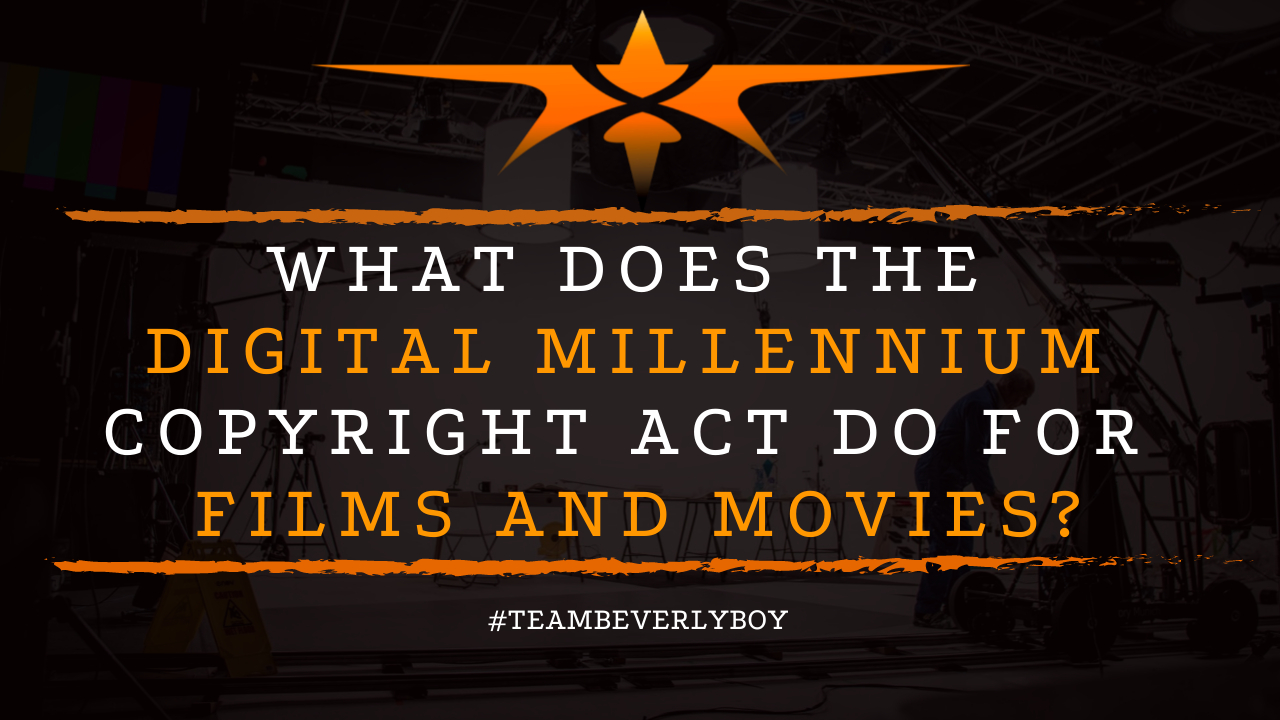
What Does the Digital Millennium Copyright Act Do for Films and Movies?
A rise in the internet and digital technology means potential for new corruption and means for criminal activity to take place. Just as any advances in technology in the past have resulted in the need for changed security and protections. So too would the World Wide Web. The Digital Millennium Copyright Act (DMCA) represents one of several federal laws that our legal system would ultimately introduce to offer protection for copyright owners.

But what does the Digital Millennium Copyright Act do for films, movies and the creators behind these amazing works?
What is the Digital Millennium Copyright Act?
The Digital Millennium Copyright Act is U.S. legislation that was introduced in 1998. In response to two World Intellectual Property Organization treaties. That had earlier been introduced for the protection of copyright to prevent the unauthorized access to.
Or copying of copyrighted work. The rise of the internet and technology that would make sharing, accessing, and otherwise using copyrighted work easier than ever before formed the foundation.
Upon which the Digital Millennium Copyright Act became a required doctrine for U.S. Copyright Legislation.
Digital Products
Specifically, the Digital Millennium Copyright Act (DMCA) adds additional language to the Copyright Act. To create protections for digital products and the way that copyrighted works are used online.
The idea was to provide protection from illegal piracy of content. However, there has been rather broad application of the Act. And some complain that it creates additional challenges around the use of copyrighted material for the purpose of research.
Part of the DMCA makes it illegal to duplicate digital copyrighted works and sell them or otherwise distribute them. The second part makes it illegal to manufacture tools. Or to otherwise distribute techniques useful to circumvent existing copyright controls.
What Does the Digital Millennium Copyright Act Do for Films?
For filmmakers, the DMCA has actually provided a much more broad spectrum control over the way consumers use copyrighted works that they have purchased, preventing them from making copies of things like DVDs or home movies.
Unfortunately, the DMCA also made it difficult for filmmakers to use footage under the fair use doctrine for several years. Until in 2010 filmmakers won an exemption from the Digital Millennium Copyright Act.
Since the DMCA exemption’s introduction for documentary filmmakers in 2010, there’ve been changes to provide an exception for ALL filmmakers. As of 2018, the DMCA exemptions are for all filmmakers allowing them the right to circumvent anti-copying technology.
And use short video clips from otherwise copyrighted works to create commentary, criticism, and other works.
In Summary
So what does the Digital Millennium Copyright Act do for films? It protects films for production and distribution on DVD. And through the internet from wrongly copying and sharing with others. Such as through piracy and illegal distribution channels.
While equally providing a safe harbor exemption for filmmakers who wish to reuse copyrighted material in future productions under the safe harbor act.
It’s not a perfect fix, and there’ve been some hurdles along the way. But recent updates have made DMCA more appealing to copyright owners, and to filmmakers, alike.



